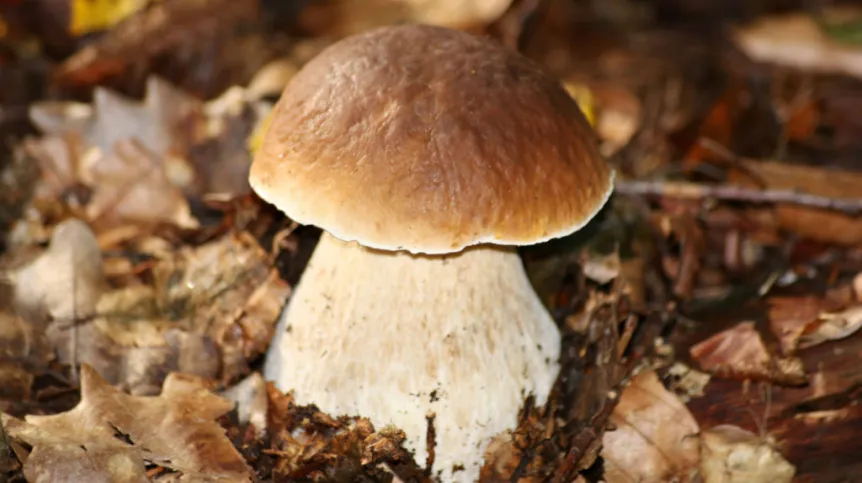
Chanterelles have more beta carotene than, for example, carrots, oyster mushrooms are potent anti-atherosclerotics, and common mushrooms can protect against depression. Mushrooms are not only delicious but also healthy. But in the woods we should only pick those that we know well - said Dr. Bożena Muszyńska.
"Mushroom poisonings are a bit like airplane crashes. There are extremely rare, but when they do happen, we all talk about them" - believes Dr. Bożena Muszyńska from the Department of Pharmaceutical Botany, Jagiellonian University Medical College.
Meanwhile, the praised taste and smell of mushrooms are not their only assets. First of all, they contain many health-promoting and medicinal substances. "Attention to the healing properties of mushrooms in Europe (in other parts of the world they have been used since prehistoric times) turned with the discovery of penicillin, the source of which are mushrooms. Same, mushroom origin has cyclosporine used to prevent graft rejection by the immune system in patients after transplant" - the scientist explained in an interview with PAP.
We should eat all edible mushrooms, primarily common mushroom, oyster mushrooms, boletes, leccinum, chanterelles, slippery jacks, parasol mushrooms. "Every cap mushroom contains a whole set of vitamins B1 to B12, H, C, Vitamin D, E, antioxidant phenolic acids, immunostimulating polysaccharides" - said Dr. Muszyńska. Studies show that mushrooms are also an excellent source of macro-and micronutrients, eg. zinc, magnesium, copper, selenium, compared to food of plant and animal origin.
Ordinary chanterelle is a better source of β-carotene than carrots and tomatoes. Common and oyster mushrooms can help the functioning of our heart. In the Czech Republic, common mushroom extracts are used to treat tuberculosis. Cooked mushroom is also one of the best sources of tryptophan, which is an anti-depressant.
"25 grams of oyster mushroom soup, administered daily to patients with hypercholesterolemia (elevated cholesterol - PAP) resulted in textbook parameters after one month. This is because this species, like common mushroom, contains lovastatin, which is now the primary drug used in the treatment of atherosclerosis" - explained Dr. Muszyńska.
All Basidiomycota (mushrooms that have cap and stipe) also produce antibiotics. Elks unwittingly helped scientists discover their properties. "It has been observed that elks are willing to eat fly agarics they find in the forest. Scientists want so find out why. It turned out that, like all mammals, these animals suffer from are infected by heartworm and fly agarics, due to the anthelmintic antibiotic muskarufin, cure this ailment" - emphasizes the researcher.
Chitin from shellfish, used in the production of Glucosamine - joint drug - is also increasingly replaced by the chitin from fungi. This way, endangered species of these animals are spared, and chitin derived from fungi is better, because it binds toxins.
"Oldest proven fungal properties are anti-cancer properties. In Japan, polysaccharides from fungi are used in anti-cancer therapy as medicines to help the immune system and to help survive the side effects of chemotherapy: nausea, lack of appetite, weight loss, hair loss" - the scientist explained.
Widely used in medicine are also fungi that inhabit tree trunks or branches - bracket fungi. They have anti-tumor, but also anti-ageing and anti-inflammatory activity.
"From the dietary point of view, it is better not to fry mushrooms, but eat them in the form of aqueous extracts or soups and sauces" - said Dr. Muszyńska.
She noted that mushroom poisonings are rare and usually result from ignorance, lack of knowledge of mushrooms. "You should only pick the mushrooms you know well. If you have any doubt as to the found specimen, it is better to leave it, and if you do not know mushrooms at all, stores offer a variety of healthy common mushrooms, oyster mushrooms and lentinus" - noted the researcher.
More information about research on fungi is available in Projektor Jagielloński 2.
PAP - Science and Scholarship in Poland, Ewelina Krajczyńska
ekr/ agt/ mrt/
tr. RL













